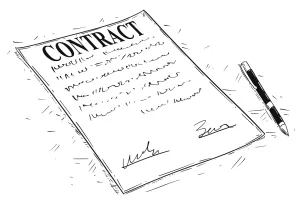A contract rider is a separate document from the contract of sale that outlines the specific details of a real estate transaction. It is important to note that most real estate attorneys do not modify the contract of sale, which often utilizes a template from official sources, such as the Committee on Real Property Law of the Association of the Bar of the City of New York.
Typically, the seller’s attorney will provide a rider for the seller, while the buyer’s attorney will offer a separate rider for the buyer.
Both of these riders are subject to negotiation and will be incorporated into any fully executed purchase contract.
Many standard contracts of sale also include a disclaimer regarding the general nature of such documents:
This form is intended to address matters that are common to most transactions involving the sale of a condominium unit. Provisions should be added, modified, or removed to accommodate the specific circumstances of a particular transaction. No representation is made that this form of contract complies with Section 5-702 of the General Obligations Law (‘Plain Language Law’).“
Does the Contract Rider Override the Purchase Contract?
Yes, in the event of any inconsistencies between the main purchase contract and the rider, the rider will take precedence. This is usually in the first bullet point of the rider.
It’s important to remember that the contract review and negotiation period serves as an opportunity for the attorneys to negotiate terms that are acceptable to both parties. This means that all points outlined in the contract rider are open to negotiation and agreement.
The Rider is Negotiable
For example, in our sample contract rider for a seller, you will notice that the seller’s attorney has requested reimbursement of monetary costs if the closing occurs outside of Manhattan.
Additionally, there is a request for the buyer to cover the seller’s carrying costs if the closing does not take place within 60 days of the contract being fully executed. Keep in mind that all of these points are negotiable, and the buyer’s attorney may challenge them!
 to know about contract riders for real estate transactions in NYC.
to know about contract riders for real estate transactions in NYC.

